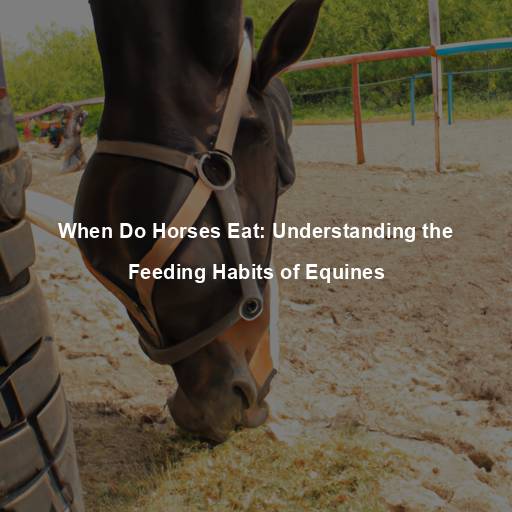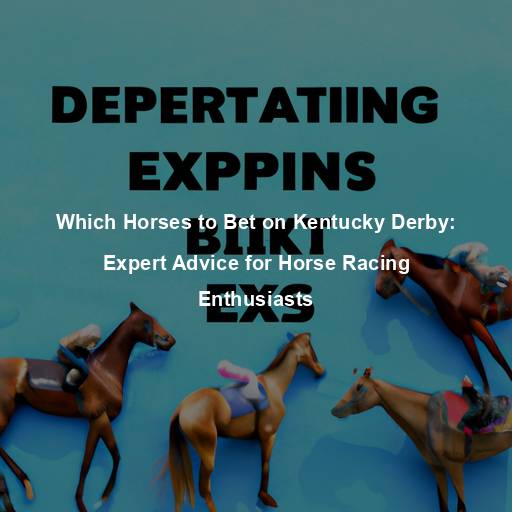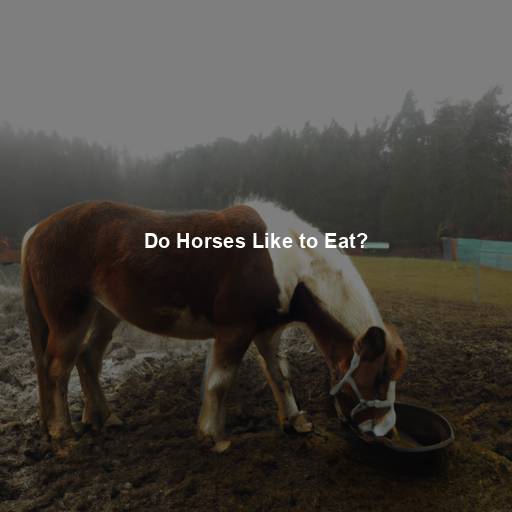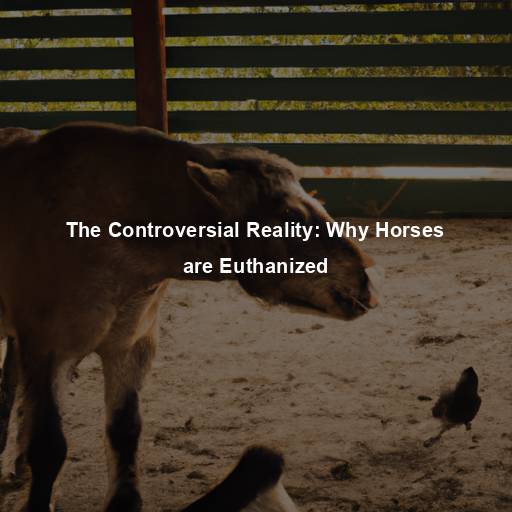When Do Horses Eat: Understanding the Feeding Habits of Equines
Last Updated on July 13, 2023 by Evan
Contents [hide]
- 1 Exploring the Natural Rhythms of Equine Feeding
- 1.1 The Peculiar Eating Habits of Horses
- 1.2 Grazing, the Foundation of Equine Nutrition
- 1.3 The Role of Pasture and Forage Availability
- 1.4 Mealtime Variations: Early Birds and Night Owls
- 1.5 Factors Influencing Feeding Times
- 1.6 The Importance of Consistency in Feeding
- 1.7 Signs of Hunger and Nutritional Needs
- 1.8 Balancing Nutritional Requirements
- 1.9 Age and Life Stage
- 1.10 Exercise and Workload
- 1.11 Health Conditions and Medications
- 1.12 Seasonal Changes
- 2 Establishing a Balanced Feeding Routine
- 3 The Art of Feeding Horses
- 4 The Bond Between Humans and Horses
- 5 FAQs – When Do Horses Eat?
- 5.1 When do horses typically eat?
- 5.2 How often should I feed my horse?
- 5.3 Do horses eat during the night?
- 5.4 What should be included in a horse’s diet?
- 5.5 Can a horse eat too much?
- 5.6 Should I feed my horse before or after exercise?
- 5.7 Can horses eat treats or human food?
- 5.8 What are some signs of a horse not eating properly?
Exploring the Natural Rhythms of Equine Feeding
The Peculiar Eating Habits of Horses
Horses, magnificent creatures that they are, have unique feeding habits that have evolved over centuries. Understanding the natural rhythms of equine feeding is crucial for their overall health and well-being. In this article, we delve into the question of when horses eat, shedding light on their feeding patterns and exploring the factors that influence their dietary habits.
Grazing, the Foundation of Equine Nutrition
Grazing is an integral part of a horse’s diet, mirroring their natural behavior in the wild. Horses are known as “trickle feeders,” meaning they consume small quantities of food consistently throughout the day. This feeding style aligns with their digestive system, which is designed to process a constant flow of forage.
The Role of Pasture and Forage Availability
It’s fascinating to observe how horses naturally manage their own nourishment, taking cues from the land’s offerings. In their untamed existence, they explore the wide expanse, indulging in a diverse array of grasses, herbs, and shrubs. Interestingly, when given the freedom to roam on a pasture, these majestic creatures dedicate an impressive 16 to 18 hours daily to the act of grazing, punctuated with moments of respite, engaging in social bonds and pursuits beyond sustenance.
Mealtime Variations: Early Birds and Night Owls
Horse nutrition is a fascinating subject filled with intriguing complexities. From the gentle sway of their grazing routines to the peculiar preferences that shape their mealtime habits, these majestic creatures never fail to pique our curiosity. Just like humans, horses too have their own internal clocks, granting them the freedom to be early birds or night owls when it comes to their dining preferences. As we delve deeper into the world of equine mealtimes, we uncover a tapestry of individual inclinations influenced by factors as diverse as routine, domestication, and personal tastes.
Factors Influencing Feeding Times
Domestication and Routine
Domesticated horses often adapt their feeding patterns to fit into the routines established by their human caretakers. These routines typically involve regular feeding times, which can influence the horse’s internal clock and dictate their hunger cues.
Environmental Conditions
Environmental factors, such as temperature, weather conditions, and the availability of shelter, can also impact a horse’s feeding habits. For instance, during hot summer days, horses may choose to graze during the cooler hours of the morning and evening, avoiding the scorching midday heat.
Social Dynamics
Horses, these captivating creatures of the wild with their majestic presence and fascinating behaviors, truly embody the essence of social beings. Their feeding habits, intricately intertwined with the dynamics within their close-knit herds or stables, unravel a world of complexity and intrigue. Within these equine societies, dominant horses seamlessly assert their authority, dictating the intricacies of the feeding hierarchy, while their submissive counterparts adeptly adapt their meal times to sidestep any potential confrontations. Observing these remarkable beings at mealtime, one can’t help but marvel at the mesmerizing synchronization that unfolds, as if each horse possesses an unspoken code, a secret language binding them all together.
The Importance of Consistency in Feeding
Ensuring that horses receive regular and balanced meals is of utmost importance for their physical and emotional wellbeing. The intricate relationship between horses and their feeding routine cannot be understated, as any abrupt alterations can give rise to a myriad of complications, ranging from digestive disturbances to psychological unrest. By adhering to a stable feeding schedule, horse owners and caretakers can provide a harmonious environment that supports optimal health and sustenance, guaranteeing a steady stream of nourishing forage to meet their equine companions’ needs.
Signs of Hunger and Nutritional Needs
Horses, like humans, have their ways of communicating their hunger and nutritional needs. As caretakers, it is essential to be attentive to their cues. Signs of hunger in horses may include pawing the ground, pacing, or vocalizing. Additionally, horses may exhibit weight loss, reduced energy levels, or changes in their overall behavior if their nutritional needs are not being met adequately.
Balancing Nutritional Requirements
When it comes to fueling our equine companions, the intricacies of nutrition can often leave us in a whirlwind of perplexity. Paving the way towards a well-rounded diet lies in comprehending the art of equine nutrition. Although the lush pastures present a solid starting point, our majestic horses crave more than just the great outdoors. Proteins, vitamins, and minerals come into play, elevating the feeding game to a whole new level of complexity.
Age and Life Stage
Understanding the intricacies of equine feeding habits reveals an enchanting tapestry of age and life stage. Each hoofed hero embarks on a unique culinary journey, their needs evolving with time. Delve into the foal’s magnificent tale, their voracious appetite for growth, and the tender bond with their nurturing mothers. Now, let us unravel the enigmatic adult horses, who possess the secrets of maintaining vitality in their tailored diet, enabling them to conquer life’s galloping challenges with grace.
Exercise and Workload
The connection between a horse’s exertion level and its dietary needs cannot be understated. Horses participating in high-intensity activities like intense competitions or demanding training sessions crave additional nourishment and energy-boosting nutrients to fuel their performance. Conversely, horses with more relaxed routines require a nuanced feeding approach to sustain their physical fitness and energy equilibrium. Striking the right balance in their feeding regimen is paramount to ensure optimal weight and well-being.
Health Conditions and Medications
In the enchanting realm of equine creatures, there exists a mysterious dance between health, hunger, and habit. Akin to the whims of fate, certain maladies and medicated sorceries can cast a bewildering spell upon a noble steed’s appetite and feeding rituals. The intricate tapestry of equine well-being can be delicately disrupted by dental diableries or gastrointestinal quandaries, rendering the simple act of chewing or digesting nourishment a perplexing challenge. In this intricate maze of equine vitality, it becomes imperative to forge an unbreakable alliance with a sagacious veterinarian, unraveling the enigmatic threads of underlying ailments and adapting feeding routines with dexterity and sagacity.
Seasonal Changes
Seasonal variations can impact the availability and quality of forage, which, in turn, affects equine feeding habits. During the colder months, when pastures may become scarce or less nutritious, horse owners often need to supplement their horse’s diet with additional hay or concentrates. Similarly, during the lush green months of spring and summer, horses may spend more time grazing and require less supplemental feed.
Establishing a Balanced Feeding Routine
Provide Access to Quality Forage
Forage forms the foundation of a horse’s diet, and ensuring access to high-quality forage is essential. Pasture grazing is ideal, but if that is not possible, offering good-quality hay is crucial. Horses should have a constant supply of forage throughout the day to mimic their natural grazing behavior.
Feed Concentrates Wisely
As we delve into the world of equine nutrition, it becomes evident that the delicate balance between forage and concentrates holds the key to a horse’s optimal health. While the age, workload, and general well-being of our equine companions play a significant role, it is the careful selection of concentrates that truly piques our curiosity. As we navigate this nutritional labyrinth, it becomes strikingly apparent that overindulging in concentrates or developing an overreliance on them can open a Pandora’s box of perplexing health issues, from unwelcome pounds to troublesome digestive woes. Therefore, it is our responsibility as caretakers to tread this path with utmost caution, embracing the knowledge that lies within these fascinating realms of equine nutrition.
Monitor Body Condition
Keeping a close eye on your horse’s physique is of utmost importance to ensure that they are getting the right nourishment. The process of body condition scoring, which encompasses various elements like weight, muscle definition, and fat distribution, acts as a reliable yardstick to evaluate whether any modifications are necessary in their feeding routine. Collaborating with an expert in equine management becomes pivotal in the journey to monitor and safeguard your horse’s overall well-being.
Consider Individual Needs
Each horse is unique, and their feeding requirements may vary. Factors such as breed, metabolism, temperament, and overall health should be considered when establishing a feeding routine. Some horses may have sensitivities or allergies to certain types of forage or concentrates, requiring special attention to their dietary needs.
The Art of Feeding Horses
Feeding horses goes beyond merely providing sustenance; it is an art that requires a deep understanding of equine biology, behavior, and nutrition. By considering the factors that influence their feeding habits and establishing a balanced feeding routine, horse owners can ensure the well-being and longevity of their beloved equine companions. Remember, a well-fed horse is a happy and healthy horse, ready to embark on new adventures and form an unbreakable bond with their human counterparts. ## Addressing Feeding Challenges and Special Considerations
Weight Management
Ensuring a horse’s weight is in tip-top shape is a paramount concern that can sometimes be a puzzling affair. Horses, like humans, may grapple with fluctuating weights, either teetering towards the thin or tipping towards the chunky. When faced with such enigmatic circumstances, partnering with a knowledgeable veterinarian or equine nutritionist becomes indispensable; they hold the key to unlocking a personalized feeding masterpiece that matches the specific horse’s requirements. Tweaks in the forage department, delving into the realm of concentrates, and even diving headfirst into the strenuous world of exercise might be needed to flawlessly orchestrate and maintain the horse’s ideal weight.
Dietary Supplements
When it comes to our noble equine companions, there can be a hazy mist of uncertainty surrounding the use of dietary supplements. While these supplements might offer a glimmer of hope for boosting overall equine well-being, we must approach them with a tinge of skepticism. Seeking guidance from a knowledgeable equine professional is paramount, as not all horses require the added complexity of a supplement regimen. Going overboard with these potions may inadvertently tip the scales, causing imbalances or, even worse, posing potential health hazards.
Senior Horses
As our equine companions gracefully glide through the years, their dietary needs ebb and flow with the passage of time. Like the intricate dance of life, aging horses may encounter perplexing obstacles such as oral tribulations that hinder their hay-chewing prowess or a waning efficiency in their digestive faculties. Fear not, dear equestrian enthusiasts, for there exists a resplendent solution to alleviate these quandaries. Enter the majestic realm of softer forage offerings – from the ethereal realms of soaked hay to the captivating allure of hay cubes.
Transitioning Feeds
When making changes to a horse’s diet or transitioning between different types of feed, it is important to do so gradually. Sudden dietary changes can disrupt the horse’s digestive system, leading to issues such as colic or diarrhea. Slowly introduce new feeds or modifications over a period of several days to allow the horse’s system to adjust and adapt.
The Bond Between Humans and Horses
For countless generations, horses have been by our side, forging an indescribable connection that transcends time. As we delve into the intricate realm of horse care, one aspect that stands paramount is understanding their nourishment. Guided by the innate ebb and flow of equine feeding, delicately tailored to their unique requirements, we unravel the secret to nurturing their well-being, unlocking a world of contentment and vitality. Navigate the labyrinth of challenges and idiosyncrasies, ensuring our equine companions embark on a journey of resplendent health, embracing the profound bond between humans and horses.
Remember, feeding a horse is not just about meeting their basic nutritional needs; it is an opportunity to strengthen the connection between horse and human. The time spent together at mealtimes can be a moment of bonding, trust-building, and mutual understanding. As caretakers, let us embrace the responsibility of nourishing these magnificent creatures and cherishing the incredible relationship we share with them.
So, the next time you find yourself wondering “when do horses eat,” remember that there is more to it than a simple answer. Horses are complex beings with unique feeding habits influenced by various factors. By approaching their feeding routine with knowledge, care, and respect, we can ensure that their nutritional needs are met and their spirits remain vibrant. Let us continue to celebrate the incredible bond between humans and horses, built one meal at a time.
FAQs – When Do Horses Eat?
When do horses typically eat?
It’s no secret that horses are true connoisseurs of cuisine, with their grazing habits reflecting a desire for a never-ending culinary adventure. With a stomach that seems almost impossibly petite compared to their majestic bodies, these enigmatic creatures simply can’t resist the urge to partake in a steady stream of delectable forage. Their insatiable appetite for 15-20 hours per day is a testament to their commitment to maintaining optimal digestion and overall well-being.
How often should I feed my horse?
Feeding horses depends on various factors such as their age, weight, activity level, and overall health. However, a general guideline is to provide horses with small meals multiple times a day. Most horses are fed between two to four times daily, ensuring they have a consistent supply of forage and/or concentrates. It is important to establish a routine feeding schedule and avoid long periods without food to prevent digestive issues.
Do horses eat during the night?
Horses have an innate penchant for grazing, and intriguingly, they might even indulge in nocturnal nibblings if the chance presents itself. In the wild, these marvelous creatures have been observed engaging in intermittent grazing sessions, round the clock. Alas, in domesticated settings with confined access to pasture or stabled conditions, the notion of nighttime feeding tends to be absent. To satiate their grazing instincts and curtail the urge for midnight snacks, it becomes imperative to ensure that horses receive ample forage during daylight hours.
What should be included in a horse’s diet?
When it comes to our equine friends, it’s all about the grub. Forage, whether it be the lush green pasture or the trusty hay, is the foundation of their diet – packed with fiber that keeps their guts in tip-top shape. Don’t forget the ##O, folks! Clean water should be available 24/7, no questions asked. Now, let’s talk about those concentrates. Grains and pelleted feeds can be a tasty addition, giving our horses that extra boost of nutrients and energy. But hold your horses! Before you start loading up their plates, have a chat with a knowledgeable veterinarian or equine nutritionist. They’ll be able to whip up a custom menu based on factors like age, activity level, and overall health. Your majestic companion will thank you for it, guaranteed!
Can a horse eat too much?
Yes, horses can overeat. However, the likelihood of overeating is generally more common in horses with unlimited access to rich pasture or unmonitored grain feedings. Overeating can lead to various health issues, including obesity, laminitis, colic, and metabolic disorders. It is important to monitor a horse’s diet and weight to ensure they are being fed appropriately for their individual needs.
Should I feed my horse before or after exercise?
When it comes to nourishing our majestic equine companions, timing is of the essence. The enchanting creatures we refer to as horses necessitate a harmonious blend of sustenance and physical exertion. In an ideal world, these graceful beings should be delicately fed at least 1-2 hours prior to engaging in any form of vigorous exercise – a thoughtful gesture that allows for the unhindered procession of digestion. However, caution should be exercised to prevent any untoward discomfort, as indulging in a feast immediately before delving into demanding physical endeavors may inadvertently divert vital blood flow from the intricate web of their digestive apparatus to the mighty muscles they possess. This diversion, though necessary to bolster their athletic prowess, could potentially upset the delicate equilibrium of their inner workings. But fear not, for dear horse enthusiasts, for after basking in the glory of a spirited romp or a riveting ride, these noble creatures may be gratified with a modest portion of hay or forage, gently replenishing the wellspring of their energy levels. Ah, but let us not rush the process, for a truly substantial meal should be reserved until the ethereal rhythm of their heartbeats has steadied and they have gracefully descended from the heights of exhilaration – a testament to their regal countenance and timeless allure. Thus, the cycle of nurture and performance intertwines, weaving a tapestry brimming with intrigue, caution, and an unfathomable bond between man and beast.
Can horses eat treats or human food?
Indulging our equine companions with delectable treats is undoubtedly a delight, whether as a token of appreciation or to commemorate special moments. However, it is imperative to tread cautiously and exercise judiciousness when pampering our horses, steering clear of overzealousness and unsuitable delights. While horses can relish small portions of horse-friendly fruits and vegetables as a well-deserved reward, it is crucial to firmly refrain from offering them potentially harmful edibles such as chocolate, caffeine, or pungent onions and garlic, as these can have toxic repercussions. Furthermore, it is vital to bear in mind that an excessive influx of treats or the introduction of human food into a horse’s dietary regime has the potential to disrupt their equilibrium and potentially give rise to health complications. Moderation should be the guiding principle when doling out treats, ensuring they seamlessly integrate into a holistic and balanced equine diet.
What are some signs of a horse not eating properly?
When it comes to our equine companions, paying attention to their eating habits is paramount. Keep an eye out for any red flags, such as fluctuating weight, unusual stool consistency, a lackluster coat, or a sudden shift in behavior. These enigmatic indicators could potentially signify an unwelcome health condition or a dietary imbalance. Don’t hesitate to reach out to a trusted veterinarian if you spot any of these perplexing symptoms, as their expertise can help unravel the mystery behind your horse’s eating woes.







